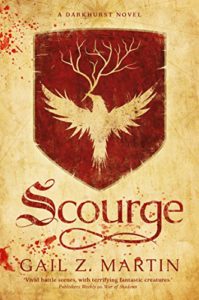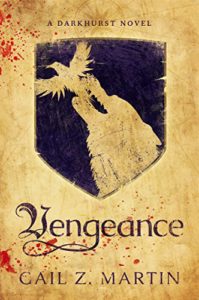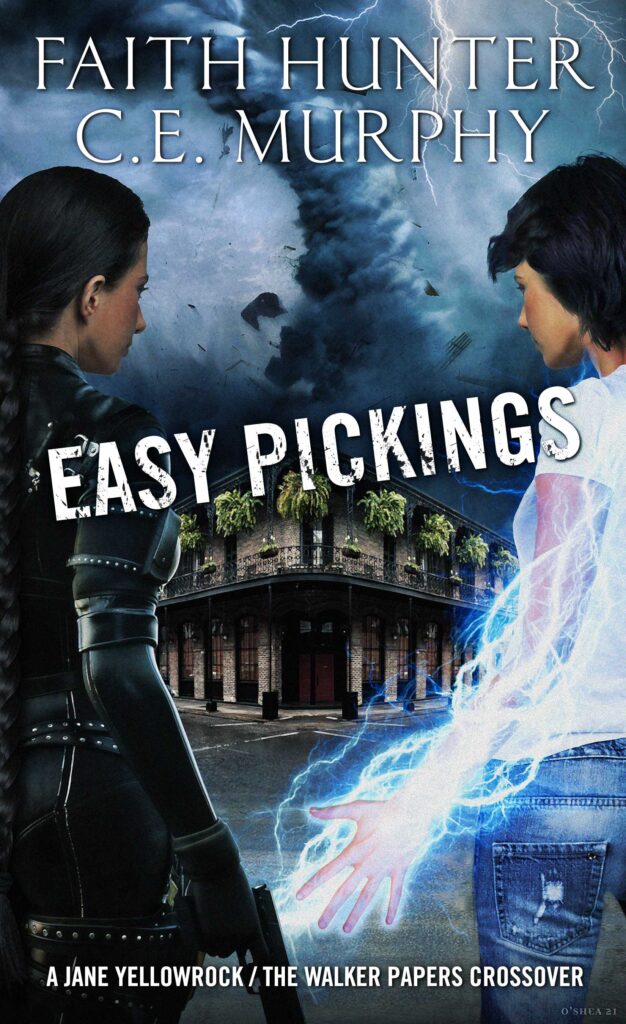Hi All,
Like me, Gail writes in multiple genres. So I asked her to talk a little bit about the similarities in the different genres. And then there is a rafflecopter link at the bottom! Take it away Gail!
Same and Different
By Gail Z. Martin
Since I write across genres (epic fantasy, urban fantasy, steampunk/alternate history, comedic horror, paranormal romance), Faith asked me to think about what the genres have in common.
More than you might think, since publishers and marketing campaigns tend to play up the differences, and play down the similarities.
Let’s start with the differences. For example, epic fantasy is big in scope—lots of characters, a plot that threatens an entire kingdom, plenty of intrigue and battles, several interwoven plots and point of view characters, and it’s usually (but not always) in a medieval setting. Think Game of Thrones.
On the other hand, Urban Fantasy, like Faith’s Jane Yellowrock series, has magic and supernatural elements in the real world, so the settings are familiar but very different from our own at the same time. There are also usually fewer point of view characters, and Urban Fantasy is often written in first person voice. And Steampunk/alternate history is really focused on the changes to history or the historical time period details.
 As I said, it’s easy to see the differences. But the heart of any good story is its characters, so that certainly cuts across genres. First and foremost, readers have to care about the characters, or there’s no point in reading the book. If the characters come from a different place, time, or culture, the author has to work even harder to make them relatable to readers and to help readers see themselves in the characters. We also want to see the relationships between the characters and feel those emotions and connections, whether it’s family or friendship, romance, hatred, or fear.
As I said, it’s easy to see the differences. But the heart of any good story is its characters, so that certainly cuts across genres. First and foremost, readers have to care about the characters, or there’s no point in reading the book. If the characters come from a different place, time, or culture, the author has to work even harder to make them relatable to readers and to help readers see themselves in the characters. We also want to see the relationships between the characters and feel those emotions and connections, whether it’s family or friendship, romance, hatred, or fear.
Setting is also something that is an essential, regardless of which genre you write. Whether your setting is a real modern or historical place or somewhere you’ve made up, it needs to feel real to the reader through the writing. The reader needs to feel like they know what the place looks like if they walked down the street—how it would smell, what kind of food would be available, what the buildings would look like, what kind of weather shapes the kinds of work people do and the crops they grow.
 Magic can be very similar across genres. The way an author builds a magic system needs to make sense, both internally and for the setting. But the concepts of how magic works, the kinds of spells that are used, the materials used for spells often are very similar regardless of the genre because they draw from common legends, lore and practices. The same is true of supernatural elements. You can use the same ‘monsters’ in different genres, but depending on the time period, technology, belief in magic/science, and worldview (as well as legends, lore and religion), the creatures can be perceived very differently, and so are the warriors that fight them.
Magic can be very similar across genres. The way an author builds a magic system needs to make sense, both internally and for the setting. But the concepts of how magic works, the kinds of spells that are used, the materials used for spells often are very similar regardless of the genre because they draw from common legends, lore and practices. The same is true of supernatural elements. You can use the same ‘monsters’ in different genres, but depending on the time period, technology, belief in magic/science, and worldview (as well as legends, lore and religion), the creatures can be perceived very differently, and so are the warriors that fight them.
I think the biggest thing that is the same across genres is the importance of a good plot. If you have a riveting story that gets readers invested in finding out what happens, they will feel transported to a different world, and they’ll care about what happens to the people who live there. After all, we all want a good tale to take our minds off our troubles!
- Scourge:
- ISBN-10: 1781085587
- ISBN-13: 978-1781085585
- Purchase at:
- ISBN-10: 1939704758
- ISBN-13: 978-1939704757
Giveaway:


